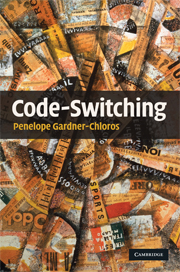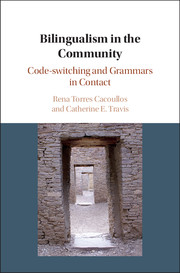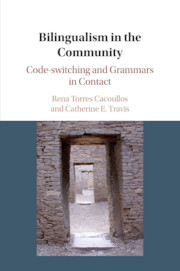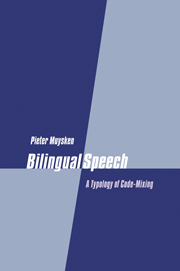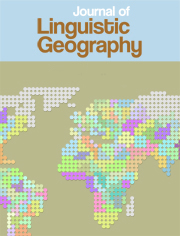One Speaker, Two Languages
Code-switching - the alternating use of several languages by bilingual speakers - does not usually indicate lack of competence on the part of the speaker in any of the languages concerned, but results from complex bilingual skills. The reasons why people switch their codes are as varied as the directions from which linguists approach this issue, and raise many sociological, psychological, and grammatical questions. This volume of essays by leading scholars brings together the main strands of current research in four major areas: the policy implications of code-switching in specific institutional and community settings; the perspective of social theory on code-switching as a form of speech behaviour in particular social contexts; the grammatical analysis of code-switching, including the factors that constrain switching even within a sentence; and the implications of code-switching in bilingual processing and development.
- First full-length book to cover the subject of code-switching systematically and comprehensively
- Interdisciplinary focus; excellent introduction to the subject
- Essays by leading scholars in the field, carefully integrated into the volume as a whole
Product details
No date availableHardback
9780521473507
379 pages
234 × 155 × 25 mm
0.657kg
22 tables
Table of Contents
- 1. Introduction Lesley Milroy and Pieter Muysken
- Part I. Code-Switching in Institutional and Community Settings:
- 2. Bilingual speech of migrant people Louise Dabène and Danièle Moore
- 3. Code-switching in the context of dialect/standard language relations Anna Giacolone-Ramat
- 4. Code-switching in community, regional and national repertoires Penelope Gardner-Chloros
- 5. Code-switching in the classroom Marilyn Martin-Jones
- Part II. Code-Switching and Social Life:
- 6. The pragmatics of code-switching Peter Auer
- 7. A social network approach to code-switching Lesley Milroy and Li Wei
- 8. Code-switching and the politics of language Monica Heller
- Part III. Grammatical Constraints on Code-Switching:
- 9. Code-switching and grammatical theory Pieter Muysken
- 10. Patterns of language mixture Shana Poplack and Marjory Meechan
- 11. A lexically based production model of code-switching Carol Myers-Scotton
- Part IV. Code-Switching in Bilingual Development and Processing:
- 12. A psycholinguistic approach to code-switching François Grosjean
- 13. Code-switching in bilingual first language acquisition Regina Köppe and Jürgen M. Meisel
- 14. The code-switching behaviour of adults with language disorders Kenneth Hyltenstam
- Conclusion
- 15. Code-switching research as a theoretical challenge Andrée Tabouret-Keller.


